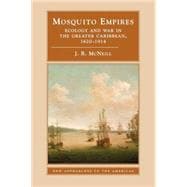
Note: Supplemental materials are not guaranteed with Rental or Used book purchases.
Purchase Benefits
What is included with this book?
| List of Maps | p. xi |
| List of Abbreviations Used in the Footnotes | p. xiii |
| Preface | p. xv |
| Acknowledgments | p. xvii |
| The Argument (and Its Limits) in Brief | p. 1 |
| The Argument | p. 2 |
| The Limits of the Argument | p. 5 |
| The Limits of the Novelty of the Argument | p. 8 |
| Setting the Scene | |
| Atlantic Empires and Caribbean Ecology | p. 15 |
| Atlantic American Geopolitics, 1620-1820 | p. 15 |
| Ecological Transformation in the Caribbean, 1640-1750 | p. 22 |
| Yellow Fever and Caribbean Ecology | p. 32 |
| Yellow Fever Transmission and Immunity | p. 40 |
| Epidemic Yellow Fever and Plantation Sugar | p. 47 |
| Malaria, Mosquitoes, and Plantations of Sugar and Rice | p. 52 |
| Climate Change, El Niño, Mosquitoes, and Epidemics | p. 58 |
| Conclusion | p. 60 |
| Deadly Fevers, Deadly Doctors | p. 63 |
| Early Yellow Fever Epidemics and Their Victims | p. 64 |
| A Virulent Strain of Medicine | p. 68 |
| Conclusion | p. 86 |
| Imperial Mosquitoes | |
| Fevers Take Hold: From Recife to Kourou | p. 91 |
| The Dutch in Brazil, 1624-1654 | p. 92 |
| The English in Jamaica, 1655-1660 | p. 97 |
| The Scots at Darien, 1698-1699 | p. 105 |
| The French at Kourou, 1763-1764 | p. 123 |
| Conclusion | p. 135 |
| Yellow Fever Rampant and British Ambition Repulsed, 1690-1780 | p. 137 |
| Yellow Fever and the Defense of the Spanish Empire | p. 137 |
| The Deadly 1690s | p. 144 |
| Siege Ecology at Cartagena, 1741 | p. 149 |
| The Seven Years' War and the Siege Ecology of Havana, 1762 | p. 169 |
| Conclusion | p. 188 |
| Revolutionary Mosquitoes | |
| Lord Cornwallis vs. Anopheles quadrimaculatus, 1780-1781 | p. 195 |
| Introduction | p. 195 |
| Slave Risings and Surinam's Maroons | p. 195 |
| Revolution and Malaria in the Southern Colonies | p. 198 |
| Yorktown | p. 220 |
| Conclusion | p. 232 |
| Revolutionary Fevers, 1790-1898; Haiti, New Granada, and Cuba | p. 235 |
| St. Domingue, 1790-1804 | p. 236 |
| New Granada, 1815-1820 | p. 267 |
| Immigration, Warfare, and Independence, 1830-1898: Mexico, the United States, and Cuba | p. 287 |
| Conclusion | p. 303 |
| Conclusion: Vector and Virus Vanquished, 1880-1914 | p. 304 |
| The Argument Recapitulated | p. 304 |
| Vector and Virus Vanquished | p. 306 |
| Disease and Power | p. 312 |
| Bibliography | p. 315 |
| Index | p. 363 |
| Table of Contents provided by Ingram. All Rights Reserved. |
The New copy of this book will include any supplemental materials advertised. Please check the title of the book to determine if it should include any access cards, study guides, lab manuals, CDs, etc.
The Used, Rental and eBook copies of this book are not guaranteed to include any supplemental materials. Typically, only the book itself is included. This is true even if the title states it includes any access cards, study guides, lab manuals, CDs, etc.